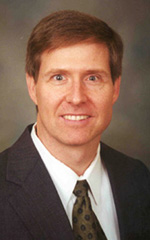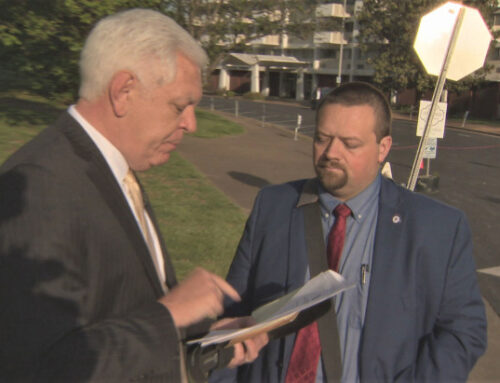Are address and phone numbers in accident reports confidential?
A Memphis judge on June 6 said no in Bradley Jetmore v. City of Memphis, affirming that such information is public record and should be accessible to the public.
The case originated after the City of Memphis in November 2017 stopped allowing public access to the reports and specifically to the driver information in the report.
Memphis, like other cities, have for years provided public access to accident reports. But in October 2017, it was sued in federal court (Price v. City of Memphis), alleging that it was violating the federal Driver Privacy Protection Act (DPPA) and the state’s Uniform Motor Vehicle Records Disclosure Act (UMVRDA) by allowing public access to the names, addresses and telephone numbers of individuals identified in crash reports.
Jetmore, who uses the information for solicitations, filed a lawsuit under the Tennessee Public Records Act when the Memphis police department stopped allowing access.
Memphis judge Joe Dae Jenkins denied the city’s motion to dismiss the public records lawsuit, but stayed an order to release the records to allow Memphis time to decide if it wanted to appeal.
The findings in the case outline the legal authority for access to crash reports. Here are some excerpts:
14. Obtaining information from a local police department, such as the City’s, does not constitute obtaining information from the “department” as explained in § 55-25-104. Section 55-25-103(1) actually excludes a local police department when it defines “department” to be the “department of safety, the department of revenue and the county clerk’s office when acting as an agent of these departments…
15. Under § 55-25-104, the name, address, phone number, and other identifying information of an accident participant or witness do not constitute “personal information” as that term is defined in the UMVRDA because the definition of personal information excludes information on “vehicular accidents.”
…
17. One of the critical elements of any report of crash events pertains to the contact information of the parties involved. The City admits that the contact information are precisely what a crash report contains… The “Who” is an integral part of the accident report. An officer cannot even submit a crash report to his supervisor for approval until it is complete. A report is not considered complete without driver name, address, phone number and date of birth.
…
21. There is nothing illogical about allowing members of the public to obtain the contact information from an accident report but not allowing them to obtain the same identifying information from a centralized data base. The primary purpose of the DPPA, and therefore the implementation of the UMVRDA, is to prevent stalking. No argument has been advanced to suggest that stalking may result from release of contact information available on accident reports.
22. Specifically, the “particular spur to action” that resulted in the enactment of the DPPA “was the 1989 murder of the television actress Rebecca Schaeffer by a fan that had obtained her address from the California DMV. Maracich v. Spears, 133 S. Ct. 2191, 2213 (2013) (Ginsburg, J., dissenting) Ms. Schaeffer’s murder was not facilitated by anyone looking at accident reports…
23. The stalking consideration has no application to this case. If a stalker wanted to acquire enough information about another person for some nefarious purpose, that information might be obtained from the centralized records of the State. That sort of inquiry, however, is now prohibited by DPPA. On the other hand, it would be an exercise in futility to try to obtain this contact information about a particular person by seeking it from the accident reports maintained at the local level. The possible stalker, if attempting to obtain that information on a particular person from local accident reports, would have to wait years, decades, or a lifetime for the subject to have an automobile accident so that the information could be recovered. Moreover, they would have to check multiple jurisdictions to find out if and where the accident occurred. Was it in the city or county, or was it an adjoining county? It is absurd to believe that someone is going to search local accident reports indefinitely in an effort to find a particular person that may never be involved in a traffic accident.
…
25. There is nothing inherently confidential about a person’s name, address and telephone number. See Moncier v. Harris, 2018 Tenn. App. LEXIS 176 at *13 (Tenn. Ct. App. Apr. 5, 2018) (observing how Tenn. Code Ann. § 10-7-504(a)(29)(C)(vi) was amended in 2016 to make addresses confidential, but that amendment was revoked in 2017 to clarify that addresses are not confidential). For many decades this information appeared in widely distributed telephone directories. Although printed versions of the directories may not be readily available, this same information is available on the Internet.
The findings also refer to T.C.A. § 55-10-108(f), which outlines punishment for using information in the reports in ways that violate state standards on solicitation:
Any report of a motor vehicle accident investigated by the department or prepared pursuant to subsection (b) shall be open to public inspection as a public record under the public records laws codified in title 10, chapter 7. It is an offense punishable as a Class A misdemeanor for any person to knowingly use the written report or information contained in the report for solicitation that is prohibited by a standard of conduct or practice of any profession licensed by the state.
“It was not the intent of the General Assembly to prohibit those persons who wish to access contact information contained in motor vehicle accidents to prevent solicitation as evidence by the last sentence of the subsection. That sentence clearly envisions that persons may obtain sufficient personal contact information from accident reports to conduct solicitation” and allows it so long as the solicitation is consistent with state standards.
The fight to close accident reports is not over. Price v. Memphis, which is in federal court in Memphis, is one of a group of lawsuits trying to gain awards from cities for allowing the reports to be public. Jettmore has intervened in that case.
Doug Pierce represents Jettmore.(Disclosure: Pierce is a member of TCOG’s Board of Directors.)





